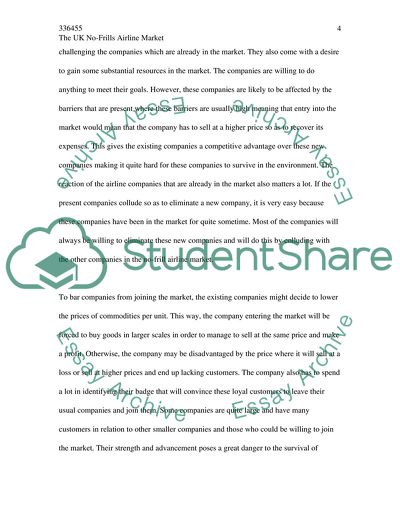Cite this document
(“The UK No-Frills Airline Market Case Study Example | Topics and Well Written Essays - 3000 words”, n.d.)
The UK No-Frills Airline Market Case Study Example | Topics and Well Written Essays - 3000 words. Retrieved from https://studentshare.org/marketing/1729707-the-uk-no-frills-airline-market
The UK No-Frills Airline Market Case Study Example | Topics and Well Written Essays - 3000 words. Retrieved from https://studentshare.org/marketing/1729707-the-uk-no-frills-airline-market
(The UK No-Frills Airline Market Case Study Example | Topics and Well Written Essays - 3000 Words)
The UK No-Frills Airline Market Case Study Example | Topics and Well Written Essays - 3000 Words. https://studentshare.org/marketing/1729707-the-uk-no-frills-airline-market.
The UK No-Frills Airline Market Case Study Example | Topics and Well Written Essays - 3000 Words. https://studentshare.org/marketing/1729707-the-uk-no-frills-airline-market.
“The UK No-Frills Airline Market Case Study Example | Topics and Well Written Essays - 3000 Words”, n.d. https://studentshare.org/marketing/1729707-the-uk-no-frills-airline-market.


